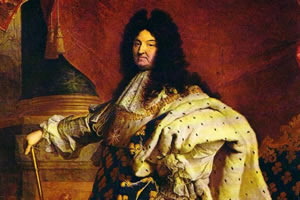What was mercantilism?
O mercantilism it was the set of economic practices adopted by European nations between the 15th and the 18th centuries. These economic practices are considered by historians as the transition stage of the feudal mode of production to capitalist mode of production. In this sense, it is incorrect to say that mercantilism was an economic system, since it did not consist of a mode of production, like feudalism and capitalism.
It was adopted by European nations during the period of Great Navigations and the setting up of the colonial system on the American continent. Because of this, many of the mercantilist practices were applied by the Portuguese during the period of colonization of Brazil. It is important to consider that mercantilism has adopted different characteristics according to the reality and needs of each European country.
How did mercantilism come about?
The emergence of mercantilism, as a set of economic practices, is directly linked to the end of feudalism and the
formation of modern national states. By Modern National State, it is understood the set of nations that emerged during the process of centralization of power in the figure of the king.See too:Absolutism and Absolutism theorists
Some classic examples of Modern National States were England, France, Spain and Portugal, which emerged with power centralized in the figure of the king. Along with the king, a whole bureaucratic apparatus emerged responsible for the administration, in political, social, economic, of the nation. The emergence of Modern States was directly supported by the power of bourgeoisie in the struggle to end the privileges of the feudal nobility.
Support for the bourgeoisie allowed this class to invest in commercial and manufacturing development. This process of development of trade and manufacturing (the embryo of industry) was also supported by the intense colonial exploitation that took place on the American continent. Finally, the Modern State that emerged in this period with power centralized in the king took control of issues relating to the economy as a way to guarantee their interests and resolve obstacles that prevented the strengthening of power real.
Do not stop now... There's more after the advertising ;)
It was in this context of strong state intervention in the economy, of expansion of trade through colonial exploitation and the growth of manufactures that consolidated a series of economic practices that received the name of mercantilism. As these economic practices are considered embryonic to capitalism, some historians call mercantilism commercial capitalism.
Features
Mercantilism was a set of practices applied by European nations in different ways. This variation in the ways of practicing mercantilism occurred according to the interests and reality of each country. In any case, the main characteristics that defined mercantilism were:
Metalism: also known as bullying, this principle consisted of defending the accumulation of precious metals as the main way of obtaining wealth. This concept was used mainly in Spain, during the reign of the Catholic kings Fernando of Aragon and Isabel of Castile. This practice coincided exactly with the period when the Spaniards brought huge amounts of precious metals from their colonies of America.
Colbertism: is seen, in part, as the opposite of the metalism practiced by the Spaniards. This practice was adopted by the French under the influence of Jean-Baptiste Colbert and it was characterized by the incentive to manufacturing development as a way to attract foreign currency and, consequently, wealth. It also advocated a policy of limiting internal spending.
favorable trade balance: this theory argued that the sum of the commercial transitions of a State should be positive, that is, the volume of goods sold should be greater than the volume of goods purchased.
other points important to be considered about mercantilism: encouraging manufacturing development, encouraging the construction of vessels (basis for commercial expansion at the time), customs protectionism (imposition of taxes on goods foreign companies).
By Daniel Neves
Graduated in History
Would you like to reference this text in a school or academic work? Look:
SILVA, Daniel Neves. "What is mercantilism?"; Brazil School. Available in: https://brasilescola.uol.com.br/o-que-e/historia/o-que-e-mercantilismo.htm. Accessed on June 27, 2021.
General history

Absolutism, Absolutist States, National Monarchies, Absolutist Monarchies, Modern Age, Renaissance, bourgeoisie mercantile, feudal barriers, national symbols, unification of territories, Hundred Years War, War of Reconquest, theory absolute


